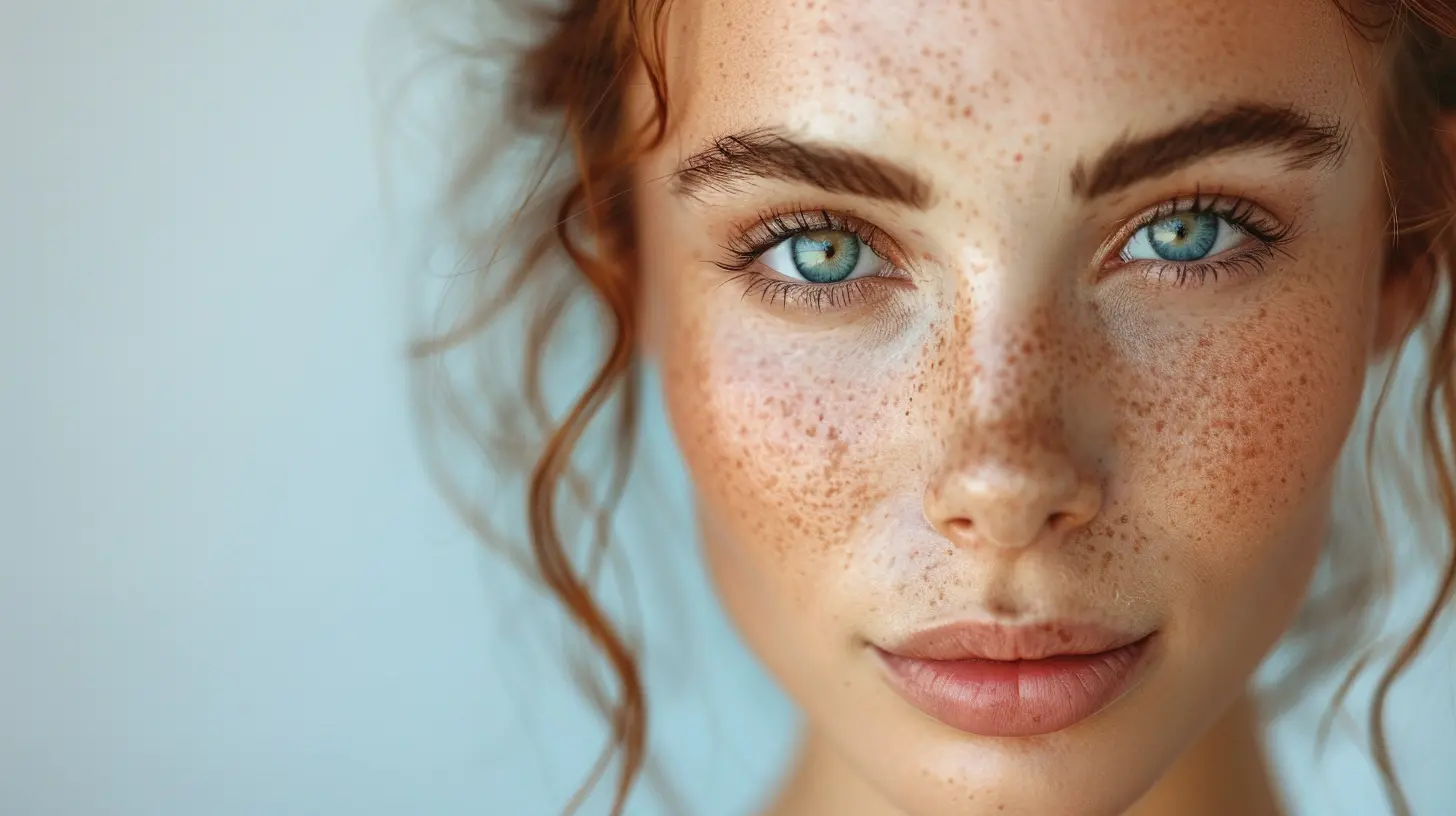Postpartum Skin Changes: How to Address Common Concerns
10 December 2024
Bringing a baby into the world is nothing short of miraculous, but let’s be real—it does come with its challenges. One minute, you’re glowing with that famous pregnancy glow, and the next, your skin feels like a stranger's. If you’re navigating the often confusing world of postpartum skin changes, don’t worry—you’re far from alone.
From acne flare-ups to stretch marks and hyperpigmentation, postpartum skin challenges are totally normal. But here's the good news: there’s plenty you can do to address these concerns and feel comfortable in your skin again. In this article, we’ll break it all down—from why your skin might be acting up to practical skincare tips you can start using today. 
Why Does Your Skin Change Postpartum?
First off, let’s talk about the “why.” Your body goes through a whirlwind of changes during pregnancy, and your skin is no exception. Hormonal fluctuations are a big culprit behind those mysterious postpartum skin woes. During pregnancy, your body is brimming with hormones like estrogen and progesterone, and after you give birth, those levels drop like a roller coaster.Add in lack of sleep, stress (because, hello, new baby!), and nutritional demands, and it’s no wonder your skin might be freaking out a bit. Your body is trying to recalibrate, and your skin is simply along for the ride. 
Common Postpartum Skin Changes
Let’s dive into some of the most common skin concerns that new moms face. Chances are, you’ll recognize at least one (if not all!) of these:1. Acne and Breakouts
Remember the teenage-level acne you thought you left behind? Yep, it can make an unwanted comeback postpartum. Hormonal imbalances can increase oil production, clogging your pores and triggering breakouts. To make things worse, sleep deprivation and stress can fuel the fire.What You Can Do:
- Use a gentle cleanser that won’t strip your skin of its natural oils.
- Spot-treat with safe ingredients like salicylic acid or tea tree oil.
- Avoid overloading on heavy moisturizers or makeup, which can clog your pores even more.
Pro Tip: Don't pick at your skin! Think of your face as a freshly baked cake—you don’t want to ruin the surface, do you?
2. Hyperpigmentation (a.k.a. Melasma)
Melasma, also known as the "mask of pregnancy," can stick around even after birth. These dark patches, often on the forehead, cheeks, or upper lip, are caused by increased melanin production during pregnancy. Sun exposure can make it worse, so it’s often more noticeable during sunny months.What You Can Do:
- Wear sunscreen religiously. Seriously, rain or shine, slap on that SPF 30 or higher.
- Try brightening ingredients like vitamin C, niacinamide, or licorice root extract.
- Be patient. Melasma can take months (or even longer) to fade.
Fun Fact: Sunscreen isn’t just for summer! Think of it as an everyday shield for your skin, like a knight’s armor.
3. Stretch Marks
Ah, stretch marks—those silvery lines that seem to pop up out of nowhere. They’re a result of your skin stretching rapidly during pregnancy and are super common. While they’re nothing to be ashamed of, you might want to minimize their appearance.What You Can Do:
- Keep your skin hydrated with rich creams or oils. Look for ingredients like shea butter, cocoa butter, or hyaluronic acid.
- Consider products with retinol (but only after you’ve stopped breastfeeding—it’s not safe during nursing).
- Massage the area daily to improve circulation and skin elasticity.
Real Talk: Stretch marks are like tiger stripes—proof of your strength and the incredible journey your body has been through.
4. Dryness and Flakiness
If your skin feels like sandpaper post-baby, you’re not imagining things. Hormonal shifts can lower your skin’s natural oil production, leaving it feeling dry and flaky.What You Can Do:
- Use a hydrating cleanser and follow up with a rich moisturizer.
- Add a few drops of facial oil to your routine for an extra moisture boost.
- Stay hydrated—drink water like it’s your favorite hobby.
Tip: Think of your skin like a plant—it needs water and nourishment to thrive!
5. Hair Loss (Okay, Not Skin, But Still Worth Mentioning!)
Okay, so hair isn’t technically skin, but it’s worth mentioning because it’s a major postpartum concern. If you’re noticing clumps of hair falling out a few months after giving birth, don’t panic. Postpartum shedding is totally normal and usually resolves within a year.What You Can Do:
- Use a gentle, sulfate-free shampoo and conditioner.
- Consider taking biotin or other hair-boosting supplements (with your doctor’s approval).
- Avoid tight hairstyles that tug on your scalp.
Fun Fact: You’re not “losing” hair; you’re just shedding all the extra hair you grew during pregnancy! 
Skincare Tips for New Moms
Now that we’ve covered the most common postpartum skin concerns, let’s talk solutions. Here are some easy and effective skincare tips to help you reclaim your glow:1. Keep It Simple
As a new mom, you’ve got your hands full—literally. You don’t have time for a 10-step skincare routine, and that’s okay! Stick to the basics: cleanse, moisturize, and protect (with sunscreen).2. Choose Safe Ingredients
If you’re nursing, some skincare ingredients are off-limits. Avoid retinol, hydroquinone, and anything with strong acids. Look for pregnancy- and breastfeeding-safe products instead.3. Make Time for Self-Care
I know—easier said than done. But even 5 minutes a day for a mini facial or applying a face mask can make a world of difference. Think of it as recharging your batteries so you can keep being the amazing mom you are.4. Consult a Dermatologist
If your skin concerns are severe or not improving, don’t hesitate to see a dermatologist. They can recommend treatments like chemical peels, laser therapy, or prescription skincare products.
Embrace Your Post-Baby Glow
Here’s the thing: postpartum skin challenges are a phase, not a life sentence. Your body has been through an extraordinary transformation, and it’s okay if your skin isn’t perfect right now. With a little patience, some TLC, and the right products, you’ll start to see improvements over time.And remember: You’re more than your skin. You’re a powerhouse of a mom, and that’s the most beautiful thing of all.
all images in this post were generated using AI tools
Category:
Postpartum HealthAuthor:

Holly Ellison
Discussion
rate this article
12 comments
Pamela Monroe
This article effectively highlights the emotional and physical challenges of postpartum skin changes. Addressing these concerns with practical skincare tips empowers new mothers, fostering both confidence and well-being during a transformative life stage.
March 7, 2025 at 5:07 AM

Holly Ellison
Thank you for your thoughtful comment! I’m glad to hear that the article resonates and provides valuable support for new mothers during this transformative time.
Peyton Green
Thank you for this informative article on postpartum skin changes. It’s reassuring to know that many new mothers experience similar concerns, and I appreciate the practical tips provided for addressing them. Your insights will surely help many navigate this transitional period with more confidence and self-care.
February 10, 2025 at 3:36 PM

Holly Ellison
Thank you for your thoughtful comment! I'm glad you found the article helpful and reassuring. Wishing you all the best on your postpartum journey!
Rory Jimenez
Loved this article! Postpartum skin changes can be tough, but knowing we’re not alone makes a difference. Great tips on addressing those common concerns—definitely saving this for when I need a little extra self-care!
February 2, 2025 at 5:19 AM

Holly Ellison
Thank you so much for your kind words! I'm glad you found the tips helpful. Remember, self-care is essential during this time!
Alisha Kim
Thank you for shedding light on postpartum skin changes. It's reassuring to know that many women experience this, and your insights on addressing these concerns are truly helpful and empowering!
January 23, 2025 at 3:45 AM

Holly Ellison
Thank you for your kind words! I’m glad you found the insights helpful. Empowering women through shared experiences is so important!
Angela McKee
This article offers valuable insights into postpartum skin changes! I appreciate the practical tips for addressing common concerns like stretch marks and acne. It would be helpful to include more information on skincare routines and products that are safe for breastfeeding mothers. Thank you for sharing this important topic!
January 17, 2025 at 4:05 PM

Holly Ellison
Thank you for your feedback! I'm glad you found the tips helpful, and I appreciate your suggestion for more information on safe skincare routines for breastfeeding mothers. I'll consider this for future updates!
Isabella Perez
Great insights on postpartum skin changes! Addressing concerns with empathy and practical tips is essential for new mothers.
January 11, 2025 at 4:50 PM

Holly Ellison
Thank you for your kind words! I'm glad you found the tips helpful for new mothers navigating postpartum skin changes.
Katherine Gutierrez
Thank you for this insightful article! It’s reassuring to know that postpartum skin changes are common and manageable. Your tips on self-care and products are incredibly helpful for new mothers navigating this transitional phase.
January 5, 2025 at 4:03 AM

Holly Ellison
Thank you for your kind words! I'm glad you found the article helpful. Wishing all new mothers a smooth journey through this transition!
Thistle Brown
Great insights! Practical tips for postpartum skin care.
December 28, 2024 at 3:23 PM

Holly Ellison
Thank you! I'm glad you found the tips helpful for postpartum skin care.
Marni Elliott
Postpartum skin changes are nature’s way of saying, 'You've earned your stripes!' Embracing self-care and targeted treatments can help reclaim your glow. Remember, every mark tells a beautiful story of motherhood!
December 20, 2024 at 6:07 AM

Holly Ellison
Thank you for your encouraging words! Embracing these changes is key, and self-care plays a vital role in nurturing our skin during this transformative time. Each mark truly tells a unique story of motherhood!
Candice Vance
Thank you for this informative article! Understanding postpartum skin changes is essential for new mothers. Your tips on addressing these concerns are truly helpful and much appreciated. Keep sharing!
December 15, 2024 at 3:42 PM

Holly Ellison
Thank you for your kind words! I'm glad you found the article helpful. Your support means a lot!
Sybil Sweeney
Great insights! It's essential for new moms to understand these skin changes. Regular skincare and hydration can make a significant difference!
December 11, 2024 at 3:44 PM

Holly Ellison
Thank you! I'm glad you found the insights helpful. Prioritizing skincare and hydration is indeed crucial for new moms during this time.
Valeris McRae
Embrace your body's journey! Postpartum skin changes are natural, and with care and love, you can nurture your skin and confidence back to radiance!
December 10, 2024 at 5:31 PM

Holly Ellison
Thank you! Embracing and nurturing our skin during this journey is essential for both healing and confidence. Your support means a lot!
MORE POSTS

Low Carb Meal Prep Ideas to Simplify Your Week

Postpartum Recovery Myths: Fact vs. Fiction

The Truth About Antibiotics and Cold or Flu

How Poor Posture Can Lead to a Weaker Skeleton

Building a Sustainable Running Routine

Strength Training for Beginners: Where to Start and What to Know

Building a Strong Postpartum Self-Care Routine

How to Balance Cardio and Strength Training Effectively